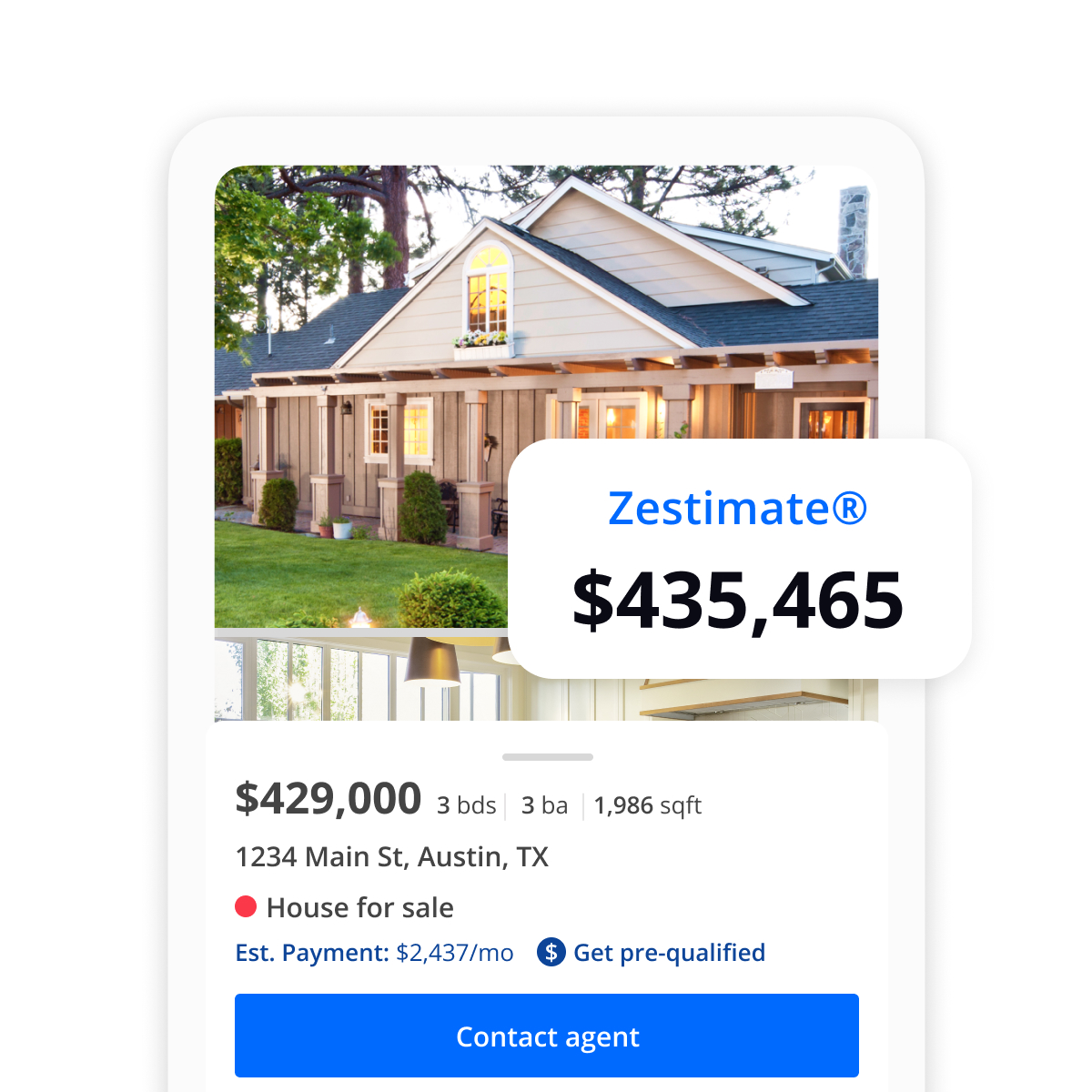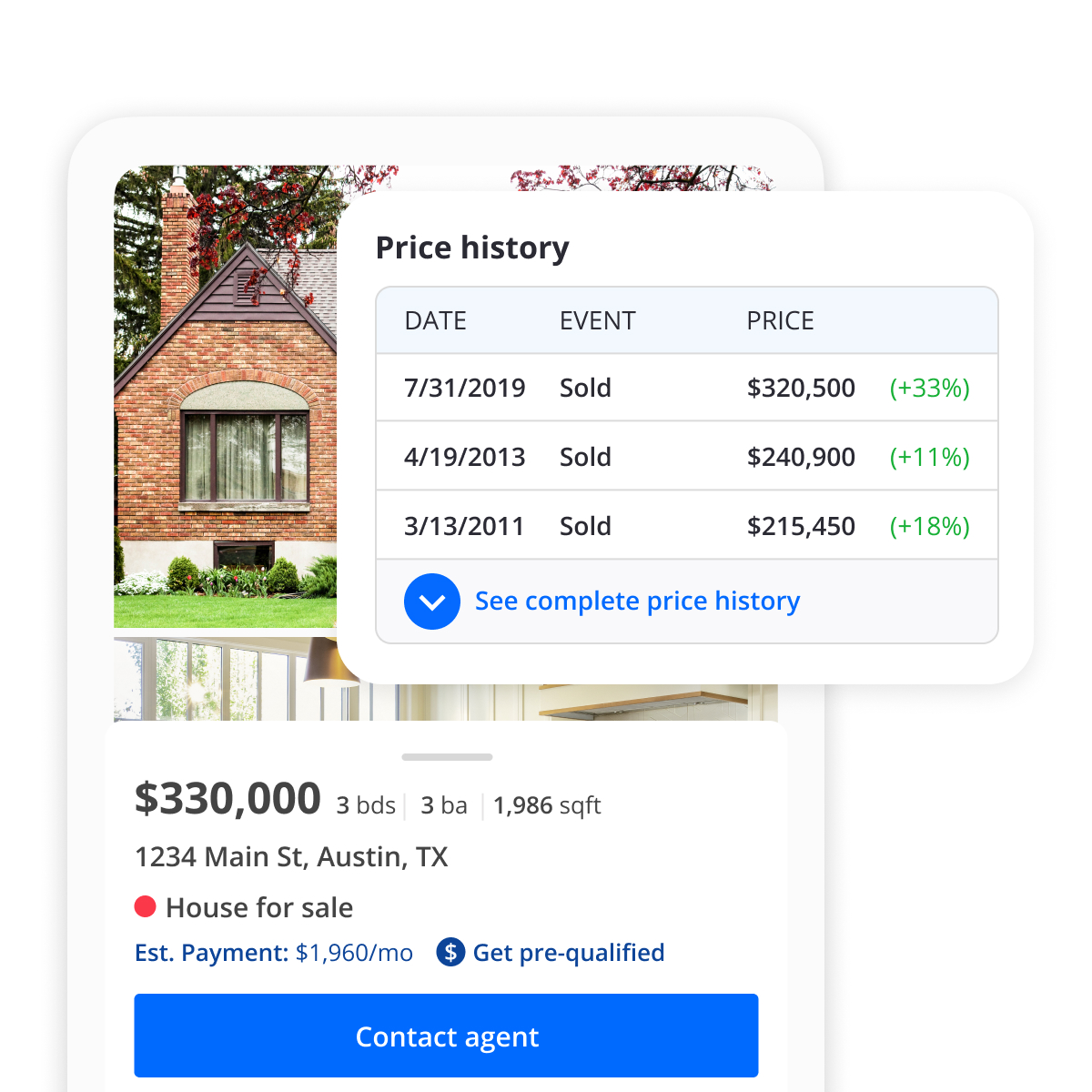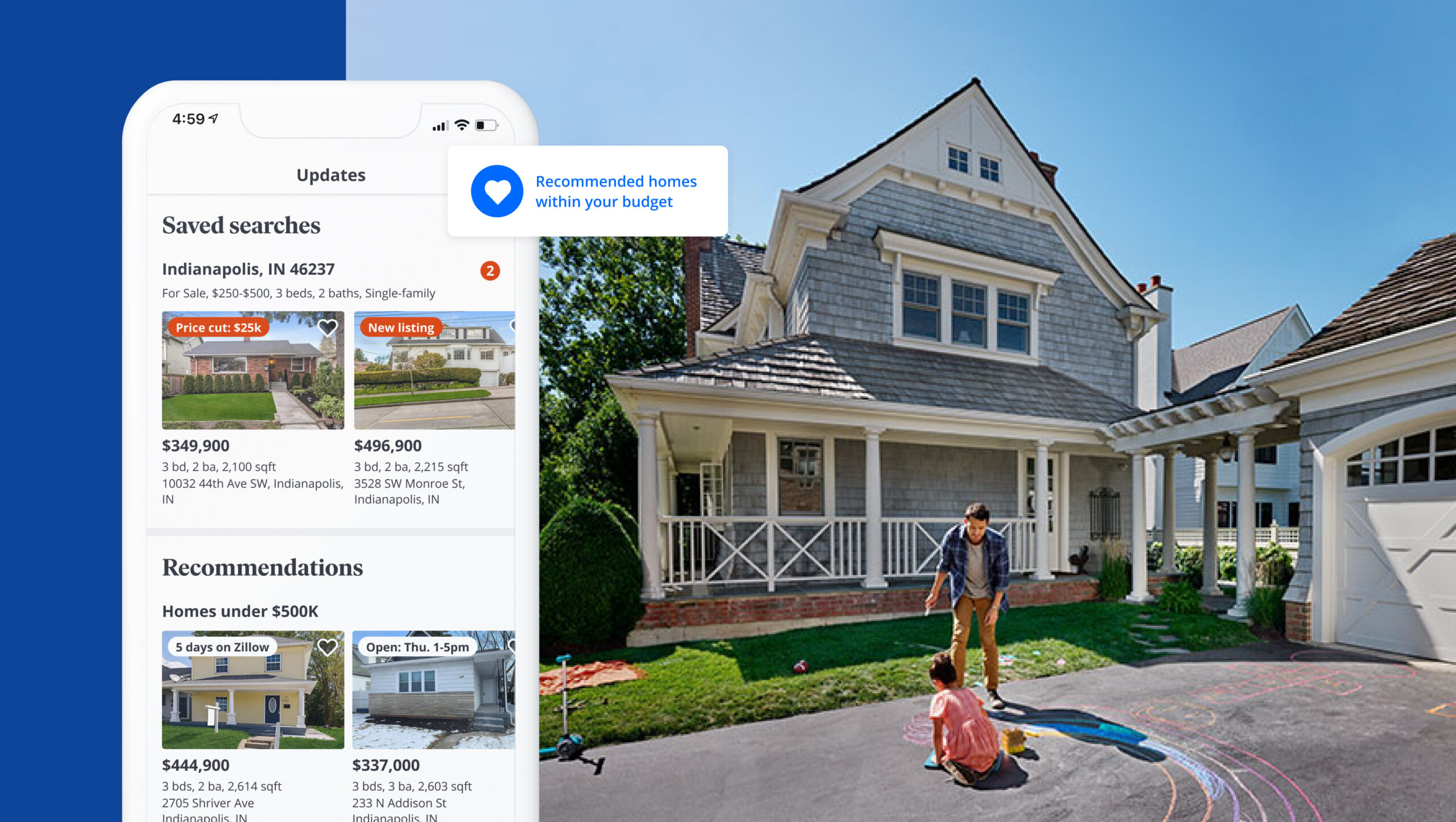How Accurate Is Zillow Valuation Of My Home? Unveiling The Truth Behind The Numbers
So, you've heard about Zillow and its home valuation feature. But how reliable is it really? If you're thinking about selling your home or just curious about its current market value, Zillow's estimate can be a great starting point. However, it's important to understand what goes into these valuations and how accurate they really are. Let's dive in and break it down for you.
Let’s face it, Zillow has become a household name when it comes to real estate. It's like the go-to platform for all things property-related. Whether you're a first-time homebuyer, a seasoned investor, or just someone trying to figure out what your house is worth, Zillow's valuation tool is probably one of the first things you check out. But hold up—how trustworthy is that number they spit out? That's the million-dollar question we're here to answer.
In this article, we're going to deep-dive into the Zillow valuation of your home. We’ll explore how it works, its pros and cons, and most importantly, how accurate it is. By the end of this, you'll have a clearer picture of whether you should rely on Zillow's estimate or take it with a grain of salt. Ready? Let’s get started!
- Cat 330 The Ultimate Guide To Caterpillars Workhorse Excavator
- How Old Is Dr Phils Wife A Deep Dive Into Robin Mcgeevers Life
What Exactly is Zillow Valuation?
Alright, let’s start with the basics. Zillow valuation, also known as the Zestimate, is an automated estimate of your home's value. It's like Zillow's way of saying, "Hey, this is what your house might be worth in today's market." The Zestimate is calculated using a mix of public data, property details, and market trends. Think of it as a digital crystal ball for your home's value—but, as we’ll see, it’s not always perfect.
Here's the kicker: Zillow uses algorithms to crunch the numbers and spit out an estimate. These algorithms take into account factors like location, square footage, number of bedrooms and bathrooms, and recent sales in your area. But here's the thing—these estimates aren’t always spot-on. Sometimes they’re dead-on, and other times, they’re way off. So, while the Zestimate can give you a ballpark figure, it’s not gospel truth.
Why Zillow Valuation Matters
Now, you might be wondering, why does Zillow valuation even matter? Well, here's the deal: in today’s fast-paced real estate market, having a rough idea of your home's value can be super helpful. Whether you're planning to sell, refinance, or just curious about how much equity you've built up, Zillow's valuation can provide a quick snapshot.
- Revolutionizing Your Space The Ultimate Guide To Reception Design
- Chip And Joanna Gaines Net Worth The Inside Scoop On Their Rising Empire
For sellers, it can help you set expectations and decide whether it's a good time to list your property. For buyers, it can give you an idea of what you might expect to pay in a certain neighborhood. And for homeowners who aren’t in the market yet, it’s a neat way to keep tabs on your home’s value without lifting a finger.
How Does Zillow Calculate Home Valuation?
Alright, now that we know what Zillow valuation is, let’s talk about how it’s calculated. Zillow uses a proprietary algorithm called the Zestimate, which pulls data from various sources to come up with an estimated value for your home. Here’s a quick breakdown of what goes into it:
- Public Records: Zillow taps into public property records to gather information about your home, like the year it was built, square footage, and number of rooms.
- Market Trends: The algorithm considers recent sales in your neighborhood to gauge how the market is performing.
- Property Details: Zillow uses the info you provide about your home, like upgrades, renovations, or unique features, to refine the estimate.
- Location: Location, location, location! Your home’s address plays a big role in determining its value. Homes in desirable neighborhoods tend to have higher Zestimates.
It’s worth noting that Zillow’s algorithm isn’t perfect. It doesn’t account for things like the condition of your home, landscaping, or other subjective factors that can influence value. So, while it’s a good starting point, it’s not the final word.
Factors That Affect Zillow Valuation
Now that we’ve covered the basics of how Zillow calculates home valuation, let’s zoom in on the factors that can affect the accuracy of your Zestimate. Here’s what you need to know:
- Property Data Accuracy: If the public records Zillow relies on are outdated or incorrect, your Zestimate could be off. For example, if the records show your home has three bedrooms but you’ve converted one into a home office, the algorithm won’t know that.
- Market Fluctuations: Real estate markets can be unpredictable. If your area is experiencing a boom or bust, Zillow’s algorithm might lag behind the actual market trends.
- Unique Features: Zillow’s algorithm struggles to account for unique features like a custom-built pool, a stunning view, or a historic charm that might add value to your home.
So, while Zillow does a decent job of estimating home values, it’s important to remember that it’s just that—an estimate. For a more accurate picture, you’ll want to consult with a local real estate professional.
Is Zillow Valuation Accurate?
Here’s the big question on everyone’s mind: how accurate is Zillow valuation, really? The short answer is—it depends. Zillow claims that its Zestimates are within 2% of the final sale price for about 50% of homes. But here’s the thing: that accuracy can vary widely depending on your location and property type.
In some markets, Zillow’s estimates are pretty close to the mark. For example, in areas with lots of recent sales data, the Zestimate tends to be more accurate. But in less active markets or areas with unique properties, the estimates can be way off. In fact, some studies have shown that Zestimates can be off by as much as 10-15% in certain cases.
Pros and Cons of Zillow Valuation
Let’s weigh the pros and cons of relying on Zillow valuation for your home’s value:
- Pros:
- Quick and easy to access.
- Gives you a general idea of your home’s value.
- Free to use.
- Cons:
- Not always accurate.
- Can’t account for unique features or property conditions.
- Relies heavily on public records, which may be outdated.
At the end of the day, Zillow valuation is a useful tool, but it’s not a substitute for a professional appraisal or a real estate agent’s opinion.
How to Improve Your Zillow Valuation
If you’re not happy with your Zillow valuation, there are a few things you can do to improve it. Here’s how:
- Update Your Property Details: Make sure Zillow has the most up-to-date information about your home. If you’ve made renovations or upgrades, add those details to your Zillow profile.
- Correct Errors: If you notice any errors in the public records Zillow uses, contact your local assessor’s office to get them corrected. Once the records are updated, Zillow’s algorithm will reflect the changes.
- Compare with Similar Homes: Look at recent sales of similar homes in your area to see if your Zestimate aligns with the market. If it doesn’t, it might be worth consulting with a real estate professional.
Remember, Zillow’s algorithm is only as good as the data it has access to. By keeping your property details up-to-date and correcting any errors, you can help ensure that your Zestimate is as accurate as possible.
When to Trust Zillow Valuation
So, when can you trust Zillow valuation? Here are a few scenarios where Zillow’s estimate might be reliable:
- Active Markets: If you live in a neighborhood with lots of recent sales, Zillow’s algorithm has more data to work with, making the Zestimate more accurate.
- Standard Properties: If your home is pretty standard and doesn’t have a lot of unique features, Zillow’s estimate is more likely to be on the money.
- Up-to-Date Records: If the public records Zillow relies on are accurate and up-to-date, the Zestimate is more likely to reflect your home’s true value.
On the flip side, if you live in a less active market or have a unique property, you might want to take the Zestimate with a grain of salt.
Alternatives to Zillow Valuation
While Zillow is a popular choice for home valuation, it’s not the only game in town. Here are a few alternatives you might want to consider:
- Redfin: Redfin offers its own home valuation tool, which uses similar algorithms to Zillow but often provides more detailed information.
- Real Estate Agents: A local real estate agent can provide a more personalized estimate based on their knowledge of the market and your property.
- Professional Appraisers: For the most accurate valuation, a professional appraiser can provide a detailed assessment of your home’s value.
Each of these options has its pros and cons, so it’s worth exploring them to see which one works best for you.
Why You Shouldn’t Rely Solely on Zillow Valuation
Here’s the bottom line: while Zillow valuation can be a helpful tool, it shouldn’t be the only factor you consider when determining your home’s value. Here’s why:
- Subjectivity: Zillow’s algorithm can’t account for subjective factors like curb appeal, interior design, or neighborhood amenities.
- Market Conditions: Real estate markets are constantly changing, and Zillow’s estimates might not always keep up with the latest trends.
- Unique Properties: If your home has unique features or is located in a niche market, Zillow’s estimate might not reflect its true value.
For a more accurate picture, it’s always a good idea to consult with a local real estate professional or get a professional appraisal.
Conclusion: Is Zillow Valuation Right for You?
Alright, we’ve covered a lot of ground here. So, let’s recap: Zillow valuation, or the Zestimate, is a quick and easy way to get a rough idea of your home’s value. It’s a great starting point, but it’s not perfect. Factors like property data accuracy, market conditions, and unique features can all affect the accuracy of your Zestimate.
If you’re serious about selling your home or need a more accurate valuation, it’s always a good idea to consult with a local real estate professional or get a professional appraisal. But for a quick snapshot, Zillow’s valuation tool can be a helpful resource.
So, what’s next? If you’ve found this article helpful, feel free to share it with your friends and family. And if you have any questions or comments, drop them below—we’d love to hear from you!
Table of Contents
- What Exactly is Zillow Valuation?
- Why Zillow Valuation Matters
- How Does Zillow Calculate Home Valuation?
- Factors That Affect Zillow Valuation
- Is Zillow Valuation Accurate?
- Pros and Cons of Zillow Valuation
- How to Improve Your Zillow Valuation
- When to Trust Zillow Valuation
- Alternatives to Zillow Valuation
- Why You Shouldn’t Rely Solely on Zillow Valuation
- Did Otto Kilcher Really Pass Away Unveiling The Truth Behind The Headlines
- Carlos Lehder The Untold Story Of A Kingpins Rise And Fall

How to Find a House on Zillow with Advanced Search Techniques Zillow

How to Find a House on Zillow with Advanced Search Techniques Zillow

How to Find a House on Zillow with Advanced Search Techniques Zillow